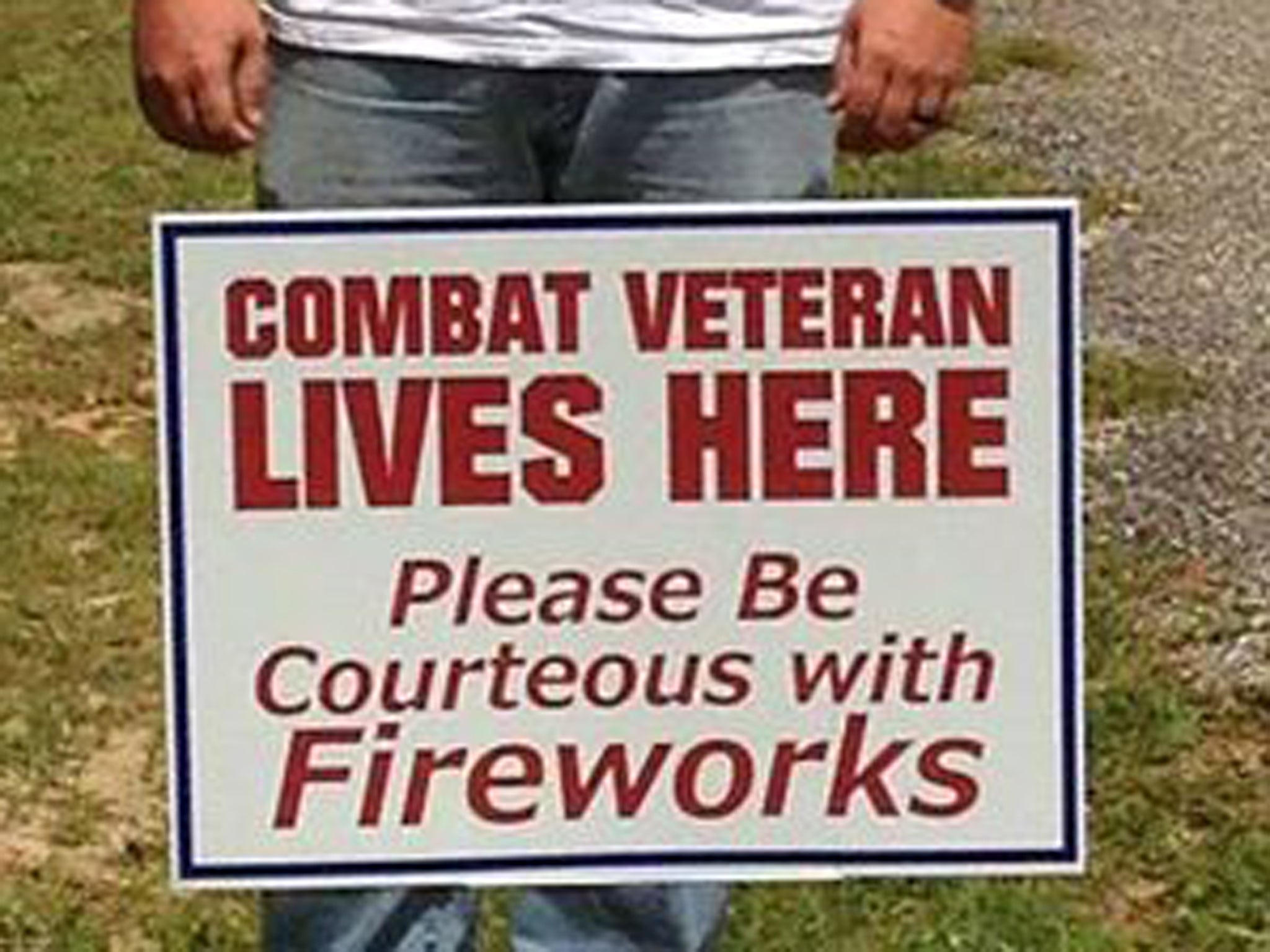Independence Day: Why fireworks makes the Fourth of July a nightmare for war veterans
A photograph of a U.S. veteran who served in Iraq expressing concern about fireworks has gone viral. Picture: Military with PTSD Facebook group

A photograph said to be of a US veteran with Post-Traumatic Stress Disorder expressing concern about fireworks has highlighted the struggle some face on Independence Day.
A picture of a bearded man standing behind a sign which reads ‘Combat Veteran Lives Here - Please Be Courteous with Fireworks’ was posted on a Facebook group called ‘Military with PTSD’ on Tuesday and went viral ahead of the American holiday, when fireworks are a tradition.
It was shared by more than 100,000 people in less than 24 hours and triggered an overwhelming response on social media, according to USA Today. On Friday afternoon, the picture had over 300,000 shares and over 4,000 comments, many written by other veterans acknowledging the challenges of dealing with celebratory fireworks as loud and sudden noises can trigger painful flashbacks for PTSD sufferers.
According to the group, the man is combat veteran Jon Dykes, who served in the U.S. Army for a decade and was deployed in Iraq, and who suffers from the disorder. A caption beneath the photo, said to be written by Dykes, says: "I lost my very best friend in 2005 and several other great soldiers over my deployments... IED [sic.], small arms ambushes, and mortar/rocket attacks were a daily occurence... We were fighting a war and we were constantly reminded of that."
“The sensitivity here is that if you know that your next-door neighbour served… and you’re planning to have a fireworks display in your backyard, it’s probably the thoughtful thing to do to let them know,” Barbara Van Dahlen, a Washington D.C. psychologist told USA Today.
PTSD is an anxiety disorder caused by frightening or distressing events, and is estimated to affect one in every three people who have a traumatic experience, according to the NHS.
Symptoms, which include reliving the traumatic event via nightmares or flashbacks, can develop weeks, months or years after it took place and can be triggered by loud noises or sounds. Sufferers may also experience insomnia and feelings of isolation and guilt.
According to a recent report by the Institute of Medicine, an estimated 7 per cent to 20 per cent of veterans who served in in Afghanistan and Iraq may have the disorder, and it is PTSD is one of the “signature injuries of the U.S. conflicts in Afghanistan and Iraq, but it affects veterans of all eras.”
Subscribe to Independent Premium to bookmark this article
Want to bookmark your favourite articles and stories to read or reference later? Start your Independent Premium subscription today.

Join our commenting forum
Join thought-provoking conversations, follow other Independent readers and see their replies